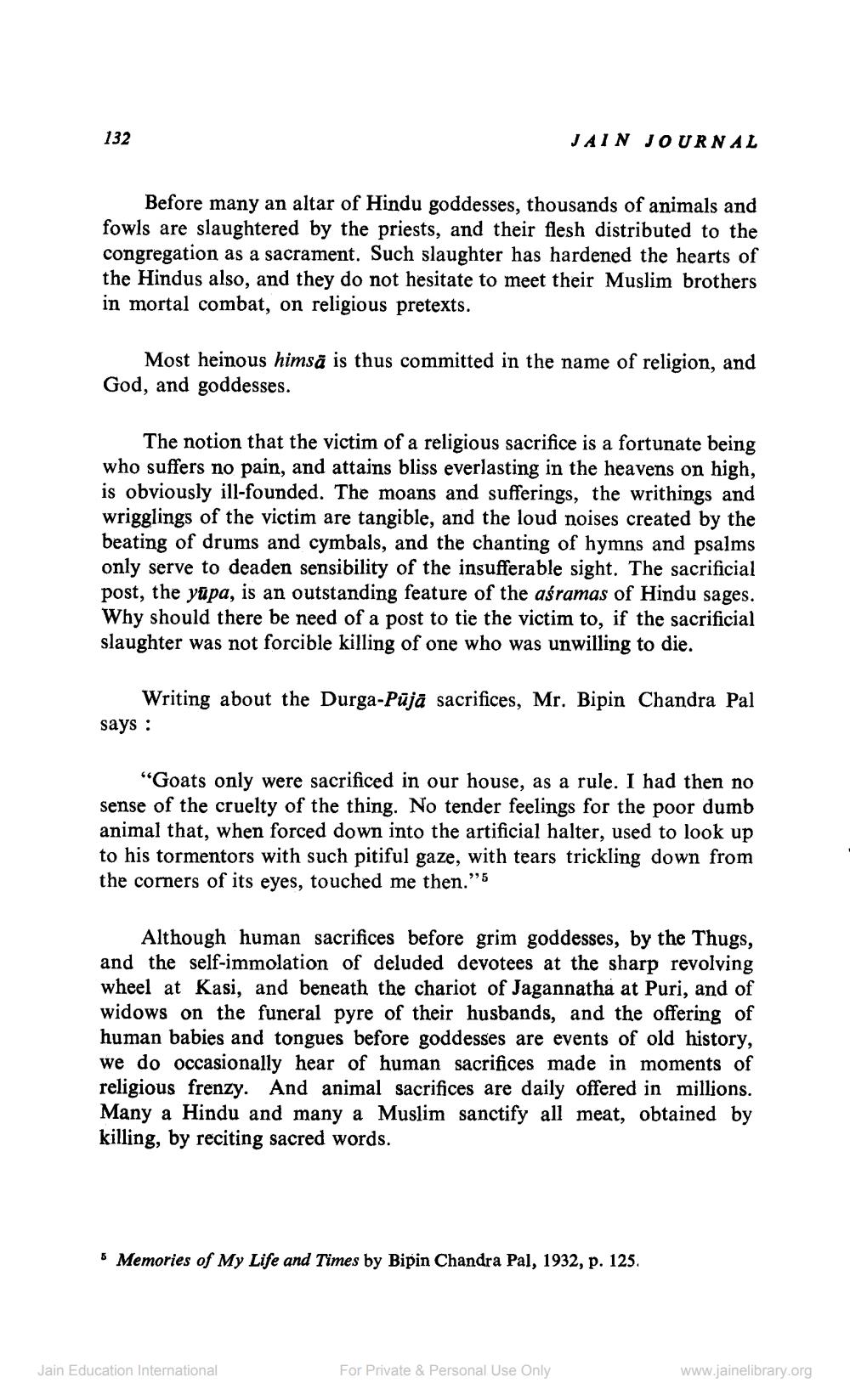________________
132
JAIN JOURNAL
Before many an altar of Hindu goddesses, thousands of animals and fowls are slaughtered by the priests, and their flesh distributed to the congregation as a sacrament. Such slaughter has hardened the hearts of the Hindus also, and they do not hesitate to meet their Muslim brothers in mortal combat, on religious pretexts.
Most heinous himsā is thus committed in the name of religion, and God, and goddesses.
The notion that the victim of a religious sacrifice is a fortunate being who suffers no pain, and attains bliss everlasting in the heavens on high. is obviously ill-founded. The moans and sufferings, the writhings and wrigglings of the victim are tangible, and the loud noises created by the beating of drums and cymbals, and the chanting of hymns and psalms only serve to deaden sensibility of the insufferable sight. The sacrificial post, the yūpa, is an outstanding feature of the aśramas of Hindu sages. Why should there be need of a post to tie the victim to, if the sacrificial slaughter was not forcible killing of one who was unwilling to die.
Writing about the Durga-Pūjā sacrifices, Mr. Bipin Chandra Pal says:
"Goats only were sacrificed in our house, as a rule. I had then no sense of the cruelty of the thing. No tender feelings for the poor dumb animal that, when forced down into the artificial halter, used to look up to his tormentors with such pitiful gaze, with tears trickling down from the corners of its eyes, touched me then.”5
Although human sacrifices before grim goddesses, by the Thugs, and the self-immolation of deluded devotees at the sharp revolving wheel at Kasi, and beneath the chariot of Jagannatha at Puri, and of widows on the funeral pyre of their husbands, and the offering of human babies and tongues before goddesses are events of old we do occasionally hear of human sacrifices made in moments of religious frenzy. And animal sacrifices are daily offered in millions. Many a Hindu and many a Muslim sanctify all meat, obtained by killing, by reciting sacred words.
Memories of My Life and Times by Bipin Chandra Pal, 1932, p. 125.
Jain Education International
For Private & Personal Use Only
www.jainelibrary.org




